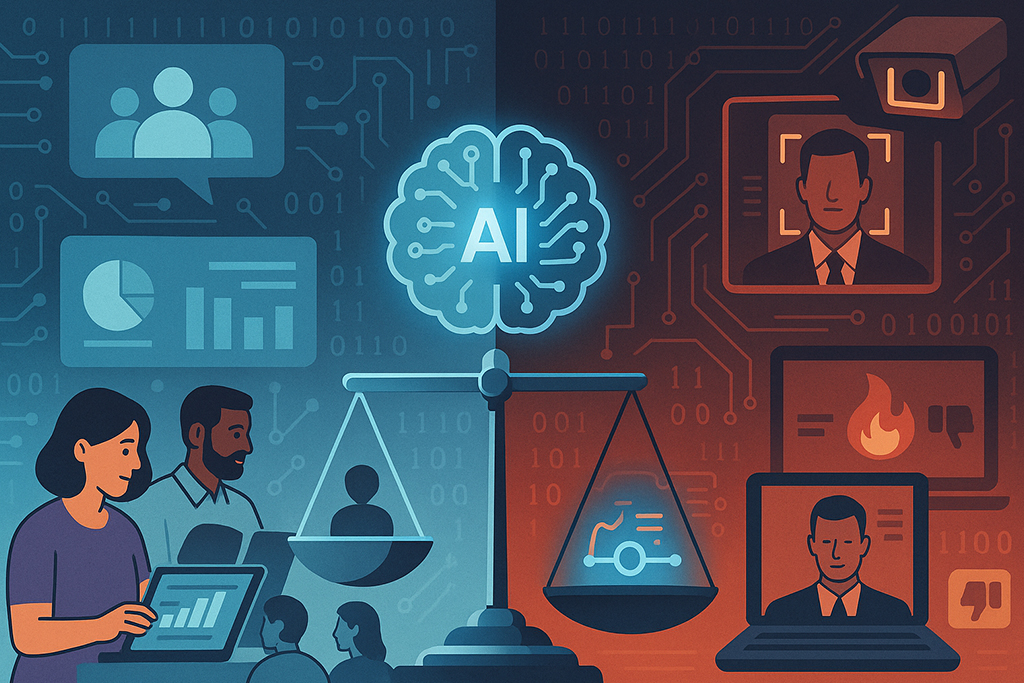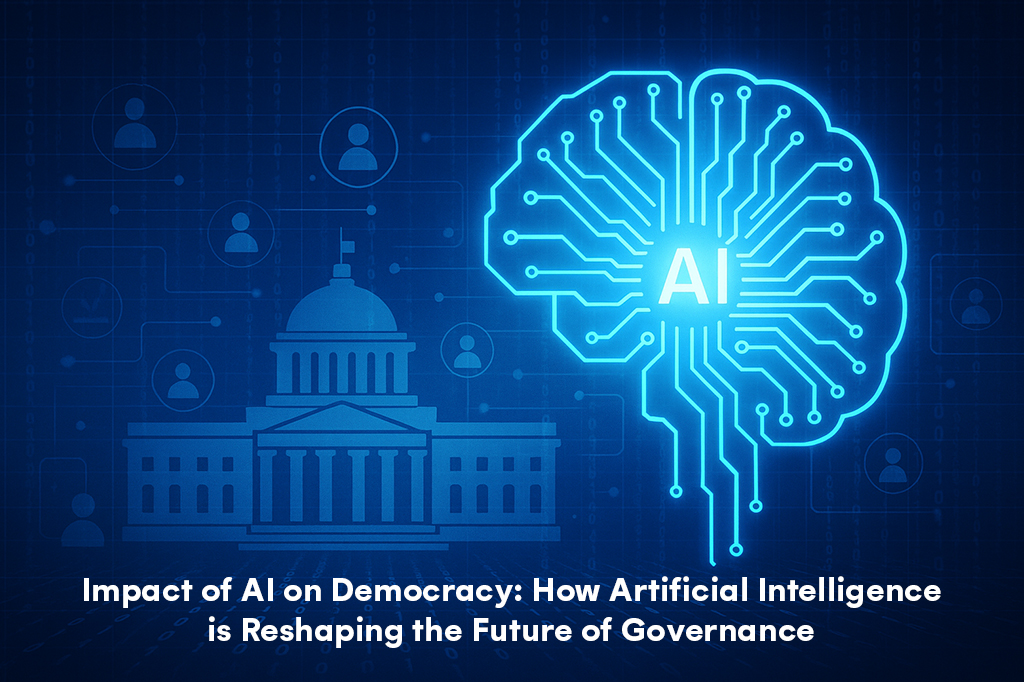Impact of AI on democracy, AI and democracy, and artificial intelligence in governance are rapidly transforming how political systems operate. Artificial intelligence is no longer a distant theoretical concern for political systems. Today, AI and democracy are entangled in real controversies over election integrity, algorithmic governance, disinformation, and citizen agency. As AI tools grow more powerful, their influence over public institutions and discourse is shaping the future of democratic systems.
In the United States, observers warn that AI could replicate or deepen existing inequities in power, rather than leveling the playing field. The balance between innovation and safeguards has become a central tension in policy debates.
In global contexts, fragile democracies face a particular risk: when AI tools are deployed without accountability, they can centralize control, suppress dissent, or manipulate opinion, undermining the principles of representation, accountability, and transparency that democracies rely on.
AI and the Future of Democracy
The ai and the future of democracy is at a tipping point. AI systems are increasingly able to influence what citizens see, think, and believe, through curated news feeds, recommendation algorithms, and deepfake content. These systems may shift public awareness even before voters realize it.
Yet there is opportunity too. AI can help governments detect threats (cyberattacks, misinformation campaigns), support policy modeling, or improve public services if used responsibly. Democracies could harness AI to make more informed decisions, manage complexity, and broaden participation.
But doing so requires building trustworthy systems. Democracies must ensure AI tools are transparent, auditable, and responsive to human oversight. This may demand new institutions, regulation, and societal norms to prevent misuse.

Impact of AI on democracy
Examining the impact of AI on democracy reveals both deployment and resistance. In some countries, AI is used for predictive policing, social credit systems, or monitoring dissent. Without proper checks, such uses can erode privacy, individual freedoms, and the separation of powers.
Opposition movements and civil society groups are pushing back. They demand algorithmic transparency, rights to contest AI-driven decisions, and stronger legal protections. In democracies with robust institutions, courts and legislatures are starting to act, seeking to ensure AI systems align with constitutional values.
Another dimension is civic AI: tools that help citizens understand policy, participate in deliberation, or monitor government performance. When designed to empower rather than surveil, ai in democracy could enhance engagement rather than shrink it.
How Does AI Affect Democracy
Impact of AI on democracy is to confront a dual-edged reality. On the positive side, AI can improve public services, detect corruption, and support data-driven governance. AI-driven analytics can help officials identify inequalities, predict natural disasters, or allocate resources more efficiently.
On the negative side, AI can distort public discourse. Deepfake videos, synthetic media, and targeted disinformation campaigns erode trust in institutions and seed confusion. Especially during elections, AI-enabled manipulation can suppress or mislead voters.
AI systems may also introduce biases. Decisions made by opaque algorithms whether in policing, credit, or welfare benefits can replicate systemic prejudice. When citizens can’t see or challenge how those decisions are made, democracy itself weakens.
Why AI Undermines Democracy and What to Do About It
When we ask why ai undermines democracy and what to do about it, we must confront the structural risks. AI tends to favor scale, surveillance, and centralization. The entities that control large datasets and compute infrastructure may gain disproportionate influence over public life.
To counter this, democracies need robust frameworks of accountability: algorithmic audits, rights to explanation, independent oversight bodies, and whistleblower protections. Public participation in AI governance is crucial communities must have a voice in shaping systems that affect them.
Investing in digital literacy, media resilience, and fact-checking infrastructure can also help societies resist AI-driven manipulation. International norms, cooperation across borders, and alignment of regulation will also be important in preventing abuse.
AI and the Future of Democracy: Challenges and Opportunities
Finally, ai and the future of democracy challenges and opportunities presents a complex mix. Challenges include authoritarian misuse, concentration of power, privacy invasion, and algorithmic opacity. Democracies must guard against these by embedding ethics, transparency, and human rights into AI systems from the start.
Opportunities lie in augmenting decision-making, enabling participatory governance, and using AI to amplify marginalized voices. With proper safeguards, AI could revitalize democratic institutions, making them more responsive, inclusive, and resilient in a digital age.
The future won’t be dictated by technology alone, it will be about the norms, laws, and values societies choose to uphold as AI becomes ever more central to democratic life.




